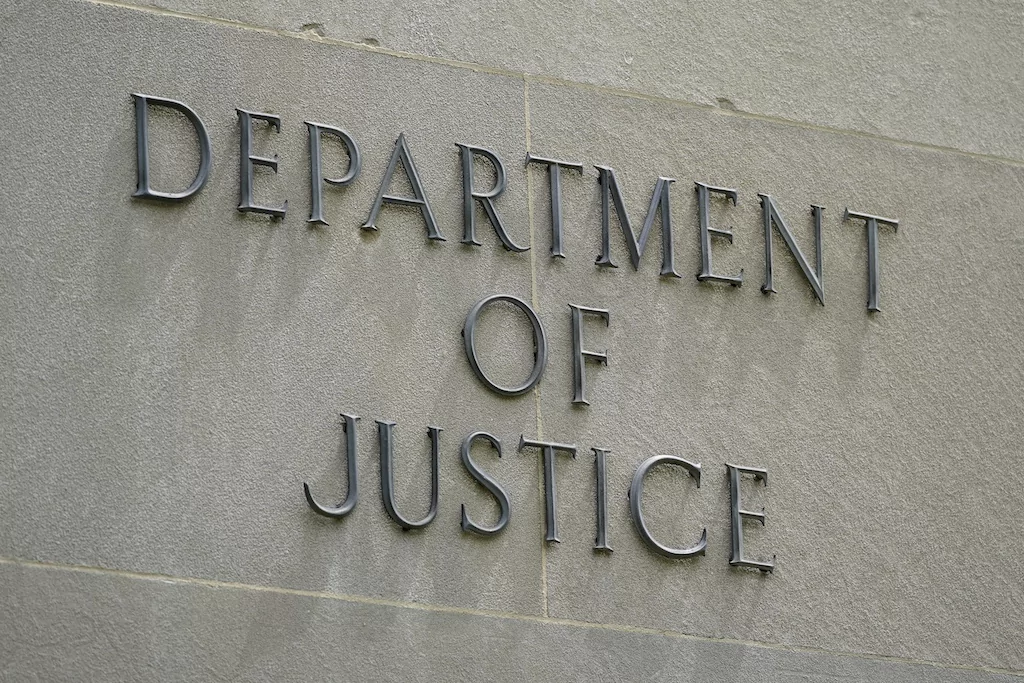

Democrats are approaching their vulnerabilities on the matter of law and order as a messaging problem rather than the policy problem critics say they’ve created for themselves.
Vice President Kamala Harris has leaned into the prosecutorial experience she once downplayed. Congressional Democrats are highlighting their embrace of law enforcement. And the party has uniformly sought to blame Republicans for an illegal immigration crisis that unfolded on Democrats’ watch and followed the implementation of Democratic policies.
The Democrats’ messaging pivot reflects the massive shift in the politics around crime, judicial norms, and law and order in just the past few years. Polls show voters have soured considerably on permissive criminal justice reform and open borders. But the Biden administration and Democrats at the congressional and state levels have offered few actual policy changes to match their rhetorical shift.
“My guess is that they have looked at where they are most vulnerable in public polling in the swing states, and it is that there’s a significant public concern about safety, which is related both to crime and the open border, and so Democrats want to get on the right side of that issue,” Charles Lipson, a political science professor emeritus at the University of Chicago, told the Washington Examiner. “But they don’t want to say anything substantively about imprisoning criminals, even violent criminals, about changing bail laws, and certainly not going back to ‘broken windows’ policing, so what they’re trying to do, and indeed I think what most of Kamala Harris’s campaign is trying to do in general, is to present an attractive facade with nothing behind it.”
“It’s like those Hollywood movie sets where there’s the front of a building,” he added, “and if you were to look behind it, there’s no building.”
Defund the police
Harris’s campaign has worked to distance the Democratic nominee from her past support for bailing rioters out of jail and decriminalizing illegal border crossings, highlighting her past work as the San Francisco district attorney and the California attorney general to paint her as the true rule-of-law candidate in the race.
However, for Republicans, her past support for defunding the police is perhaps best viewed as a way to illustrate the progressivism she is trying to hide. Crime no longer dominates headlines or tops lists of voters’ concerns such as it did just two years ago.
“On the national level, I think it’s largely receded,” political pollster Justin Wallin told the Washington Examiner. “In terms of what we typically think of as law and order, it’s very, very much an issue on the local level, cities and counties.”
Republicans have gotten their hopes up about the potency of the crime problem before, only to face disappointment. During the 2022 midterm elections, GOP candidates in a number of competitive races focused their messaging on public safety amid voters’ fears about rising crime.
In New York, Republicans even led themselves to believe they could win the gubernatorial race when former GOP Rep. Lee Zeldin surged in polls against Gov. Kathy Hochul (D-NY) on the strength of his tough-on-crime message. Hochul still won that race by nearly 6 percentage points.
Still, Harris and other Democrats have gone out of their way in this election to distance themselves from soft-on-crime positions they celebrated — while offering little in the way of tougher solutions. Democratic candidates in congressional races have sunk $24 million into pro-police campaign ads so far this cycle, Punchbowl News reported.
Democrats have similarly pinned the blame for the border crisis on Republicans, arguing in part that GOP lawmakers effectively rejected more funding for Border Patrol agents when they opposed a bipartisan immigration compromise earlier this year. The bill would have added up to 1,500 more agents in Customs and Border Protection.
“As president, she will hire thousands more border agents,” says the narrator in a Harris campaign ad launched last month.
But Democrats have done little to add to Border Patrol’s ranks during the years they’ve been in charge. In fact, the Border Patrol lost nearly a quarter of its workforce since former President Donald Trump lost the 2020 election, the Washington Examiner reported in May.
‘No one is above the law’
Republicans have increasingly focused on what they see as the weaponization of the Department of Justice against Democrats’ ideological foes, from anti-abortion activists to the Republican presidential nominee.
President Joe Biden’s DOJ brought two unprecedented sets of charges against Trump in cases that have stalled due to rebukes from either the presiding judge, in a case involving accusations that Trump illegally concealed classified documents, or the Supreme Court, in a case involving novel accusations that Trump sought to overturn the 2020 election results.
Still, Democrats have cast Trump as posing the greater threat of weaponizing the DOJ and warned voters he would use prosecutors to go after political opponents without acknowledging the reality that, however noble they view the reasons, prosecutors are already doing just that in an election year.
“As far as the Harris campaign painting Donald Trump with his legal challenges that he’s having, they’re certainly having a go at it. The challenge that they’re facing is that it’s nothing new,” Wallin said. “The two different races face starkly different core issues, and the core issue for Trump is everyone knows him.”
Voters who view the criminal cases against Trump as evidence that the former president poses a threat to law and order long ago made up their minds not to support him, Wallin noted, while voters who remain undecided clearly don’t view the indictments as disqualifying.
But Republicans’ concerns about partisan activity at the DOJ go far beyond its two cases against Trump.
Critics have noted that the DOJ under Biden and Harris has aggressively enforced some laws that align with Democrats’ ideological preferences while choosing not to pursue cases against ideological allies.
For example, prosecutors have made liberal use of the Freedom of Access to Clinic Entrances Act, a law that effectively criminalizes disruptive protests at abortion clinics and other reproductive health facilities.
Biden’s DOJ had, as of the end of last year, brought at least 15 FACE Act cases against 46 anti-abortion defendants, as the Washington Examiner previously reported.
By contrast, the Trump DOJ charged just five people with FACE Act violations over four years.
While the law is supposed to protect anti-abortion pregnancy centers as well, the Biden DOJ has seldom used it to do so despite dozens of attacks on pregnancy centers by activists since 2022, when the Supreme Court overturned Roe v. Wade. Federal law enforcement has failed to make arrests in cases as extreme as the firebombing of pregnancy centers, while prosecutors have secured FACE Act convictions against anti-abortion activists for peaceful protests that involved praying outside abortion clinics.
The Biden DOJ has also invested substantial resources into prosecuting more than 1,200 people for their participation in the Jan. 6, 2021, riot at the Capitol. Democratic prosecutors, such as Manhattan District Attorney Alvin Bragg, and federal prosecutors have, by contrast, dropped charges against anti-Israel protesters who destroyed property in New York City and Washington, D.C., respectively.
And progressive prosecutors in several cities notably did not pursue serious charges against most of the rioters accused of looting and destroying buildings during the riots that occurred after George Floyd’s death in 2020.
“My own sense is that Republicans are divided about whether or not the right thing to do is to look really hard at what Democrats have done and what the DOJ has done and what local prosecutors have done, and go after them for malfeasance and for political prejudice and all the rest,” Lipson said.
“It would be very divisive if Trump were to use the DOJ to go after what were perceived to be his political enemies,” he added. “On the other hand, I talk with a lot of Republicans who say, ‘Look, this is just never going to stop unless they pay a price.’”
Ballot battles
Harris has focused less on the perceived threat to democracy posed by Trump than Biden did before he dropped his reelection bid, but the message continues to play a central role in Democratic campaigns overall in 2024.
Democrats regularly accuse Trump and Republicans of seeking to undermine confidence in elections ahead of November.
But Democratic groups are simultaneously fighting to install or preserve rules that allow for ambiguity in election administration.
For example, the Biden-Harris administration has fought against a Republican push to require Arizona residents to provide proof of their citizenship in order to register to vote. In Michigan, the Democratic National Committee filed briefs earlier this year urging a judge to reject a GOP challenge accusing multiple Michigan counties of having more registered voters on their rolls than people over 18 in their populations.
And in Pennsylvania, Democrat-aligned groups celebrated a judge’s recent ruling that election workers must count mail-in ballots without a date written on them.
CLICK HERE TO READ MORE FROM THE WASHINGTON EXAMINER
The fights over voting rules have muddied the waters around which party is really encouraging lawlessness in elections.
While protecting democracy has mostly been a Democratic talking point since Trump unsuccessfully challenged the 2020 results, Republicans are increasingly adopting the matter as their own. GOP lawmakers are considering attaching a measure to a must-pass spending bill this month to create a national proof-of-citizenship requirement for voter registration.





